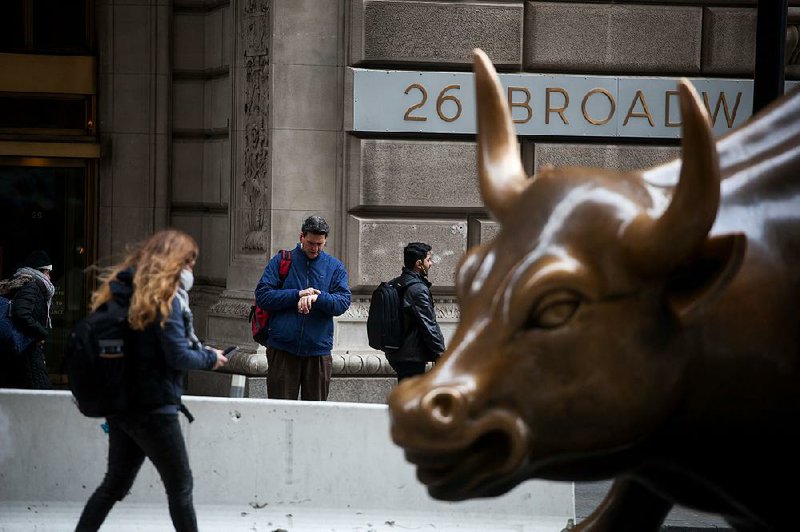NEW YORK -- Wall Street got exactly what it wanted from Friday's jobs report: solid hiring, moderate wage growth and continued low unemployment. Investors sent stocks sharply higher, particularly their recent favorites, technology companies.
The Nasdaq composite regained the last of its February losses and closed at an all-time high. Banks also rose as interest rates increased, and industrial and health care and basic materials companies also climbed. Those sectors tend to do better when the economy is growing quickly.
U.S. employers added 313,000 jobs in February, more than forecast, and wages didn't rise as much as investors had feared. The Labor Department also said January's spike in wages was a bit smaller than it originally thought. It made for a happy ninth anniversary for the current bull market.
A month earlier, a jump in wages got investors worried about inflation and set off a stock market swoon, giving the benchmark S&P 500 index its first 10 percent decline in two years.
"I think the fears of wages getting out of control in this point in the cycle ... were squashed," said Katie Nixon, chief investment officer for Northern Trust Wealth Management.
The S&P 500 index climbed 47.60 points, or 1.7 percent, to 2,786.57. The Dow Jones industrial average rose 440.53 points, or 1.8 percent, to 25,335.74. The Nasdaq composite jumped 132.86 points, or 1.8 percent, to 7,560.81. The Russell 2000 index of smaller-company stocks picked up 25.18 points, or 1.6 percent, to 1,597.14.
Bond yields also moved solidly higher as investors anticipated that the solid jobs survey portends more steady growth in the U.S. economy.
Apple rose $3.04, or 1.7 percent, to $179.98 and Microsoft jumped $2.11, or 2.2 percent, to $96.54. Both finished at record highs. Technology companies have led the market's rally since early 2017, and they have led the recovery from its recent lows as well.
The S&P 500 is still 3 percent beneath its latest record high close, which came on Jan. 26. None of the other major S&P sectors have recovered all of their February losses, as technology has.
Bond prices dropped. The yield on the 10-year Treasury note rose to 2.90 percent from 2.85 percent. Banks advanced, but high-dividend stocks such as utilities and phone companies fell. Those stocks are often compared to bonds and they tend to fall when yields move higher, as higher yields make them less appealing to investors seeking income.
Stocks initially declined last week after President Donald Trump said he would place tariffs on imported steel and aluminum. They've recovered their losses after he granted exemptions to Canada, Mexico, and potentially to other countries.
Nixon said the administration appears to be setting itself up to take a harder line in China. While China isn't a major exporter of steel to the United States, trade disputes between the two countries aren't uncommon and the government is currently investigating China's treatment of intellectual property held by U.S. companies.
U.S. and South Korean officials said Trump might meet with North Korean leader Kim Jong Un by May to negotiate a potential end to Pyongyang's nuclear weapons program. The news helped send South Korea's Kospi up 1.1 percent. Other Asian indexes also rose. Japan's benchmark Nikkei 225 gained 0.5 percent and. Hong Kong's Hang Seng also rose 1.1 percent.
Business on 03/10/2018
